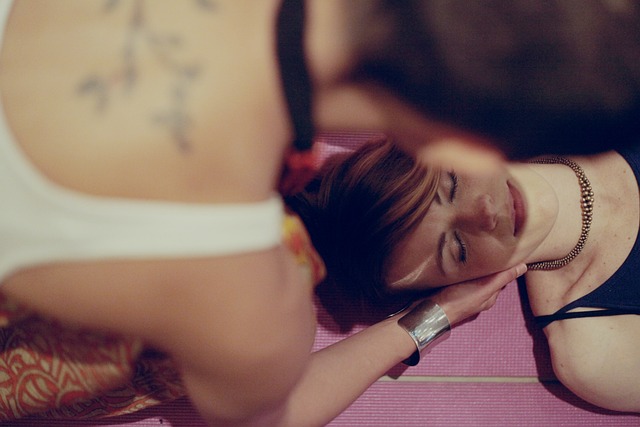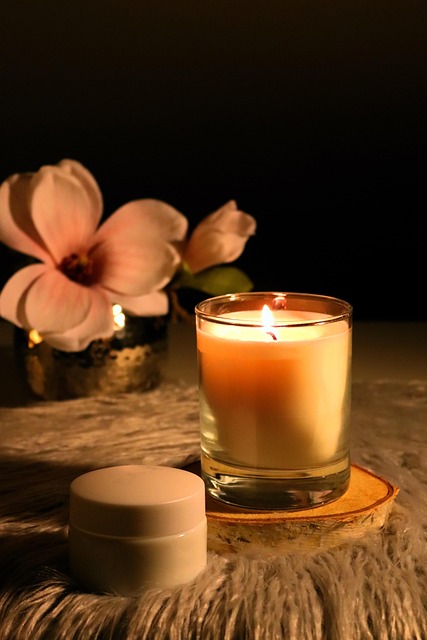Sleep and relaxation are key components of holistic wellness. Wellness programs integrating mental health workshops, yoga, fitness, and nutrition counseling offer a comprehensive approach to improve mental well-being. By creating a peaceful environment, practicing mindfulness, and establishing routines, individuals can enhance sleep quality, manage stress, and promote overall relaxation. These programs focus on balancing physical practices with stress reduction techniques, ultimately empowering people to take control of their mind-body connection for optimal wellness.
Seeking optimal sleep and relaxation is a cornerstone of modern wellness. In today’s fast-paced world, mastering these practices is crucial for navigating life’s challenges. This article offers practical tips to elevate your holistic wellness journey, encompassing mindfulness, stress management, and comprehensive programs like mental health workshops, yoga, fitness plans, and nutrition counseling. Discover how cultivating sleep and relaxation enhances your overall well-being.
- Understanding Sleep and Relaxation: The Foundation of Holistic Wellness
- Creating a Mindful Environment for Rest and Recovery
- Incorporating Stress-Reducing Practices into Your Daily Routine
- Nutrition, Exercise, and Mental Health Workshops: A Comprehensive Approach to Wellness Programs
Understanding Sleep and Relaxation: The Foundation of Holistic Wellness

Understanding Sleep and Relaxation: The Foundation of Holistic Wellness
Sleep and relaxation are cornerstones of holistic wellness, encompassing both mental health workshops and programs designed to rejuvenate the mind and body. Effective wellness programs for mind and body integrate various practices like mindfulness and meditation, yoga for wellness, fitness and exercise plans, as well as nutrition and diet counseling. These comprehensive approaches recognize that optimal health is not just about physical activity or dietary choices; it’s equally dependent on managing stress and cultivating mental clarity.
By prioritizing sleep, individuals can enhance their ability to cope with daily stressors, boost mood, and improve cognitive function. Relaxation techniques, such as deep breathing exercises and progressive muscle relaxation, play a crucial role in mitigating symptoms of anxiety and depression. Incorporating these practices into one’s routine not only enhances overall quality of life but also underpins long-term success in managing stress, promoting better mental health, and achieving a balanced lifestyle.
Creating a Mindful Environment for Rest and Recovery

Creating a mindful environment is key to enhancing rest and recovery. Start by transforming your space into a serene sanctuary where you can escape the chaos of daily life. Dim lights, soft textures, and calming scents like lavender or eucalyptus can instantly promote relaxation. Consider incorporating natural elements such as plants or a small water feature to connect with nature, which has been proven to reduce stress levels.
Additionally, invest in comfortable bedding and pillows to ensure physical comfort. Create a consistent bedtime routine by setting aside time each day for mental health workshops or mindfulness practices like meditation or yoga for wellness. These holistic wellness programs can help quiet the mind and prepare your body for sleep. Pair these with tailored fitness and exercise plans, as well as nutrition and diet counseling, to support overall well-being and create a balanced lifestyle conducive to rest and recovery.
Incorporating Stress-Reducing Practices into Your Daily Routine

Incorporating stress-reducing practices into your daily routine is a key component of achieving optimal wellness for both mind and body. Holistic wellness programs that blend mental health workshops, mindfulness and meditation sessions, yoga for wellness, and fitness and exercise plans can significantly enhance sleep quality and overall relaxation. These comprehensive approaches not only help manage stress but also promote physical well-being through tailored nutrition and diet counseling.
By integrating these practices into your routine, you create a nurturing environment that supports mental clarity, emotional balance, and deep rest. Whether it’s dedicating time for morning meditation or engaging in gentle yoga before bed, each small step contributes to a more serene lifestyle. These wellness programs empower individuals to take control of their well-being, leading to improved sleep patterns and a heightened sense of relaxation in the face of daily stressors.
Nutrition, Exercise, and Mental Health Workshops: A Comprehensive Approach to Wellness Programs

Nutrition plays a crucial role in both sleep quality and overall relaxation. Incorporating a balanced diet rich in essential nutrients supports optimal bodily functions, which can directly impact your ability to unwind. For instance, foods high in magnesium like leafy greens and almonds promote muscle relaxation while reducing anxiety symptoms. Omega-3 fatty acids found in salmon and walnuts also contribute to better sleep by regulating serotonin levels. Additionally, staying hydrated throughout the day aids in flushing out toxins and supports healthy sleep cycles.
Combining nutritious eating habits with regular physical activity is a powerful strategy for holistic wellness programs. Exercise acts as a natural stress reliever, releasing endorphins that boost mood and alleviate tension. Incorporating yoga into your fitness routine not only improves flexibility and strength but also teaches mindfulness techniques to enhance relaxation. Mental health workshops focusing on stress management programs and mindfulness meditation further complement these practices by providing tools to navigate daily challenges calmly. These holistic wellness programs ultimately empower individuals to cultivate a balanced mind-body connection, fostering both sleep improvement and overall well-being.
Improving sleep and relaxation is a multifaceted journey towards achieving holistic wellness. By understanding the importance of these pillars in our daily lives, we can create transformative habits through mindful environment design, incorporating stress-reducing practices, and engaging in mental health workshops. Whether it’s through yoga for wellness, fitness and exercise plans, or nutrition and diet counseling, these comprehensive approaches to wellness programs empower us to take control of our mind and body. Embrace these practical tips to enhance your sleep quality, reduce stress, and cultivate a profound sense of relaxation that benefits every aspect of your life.
